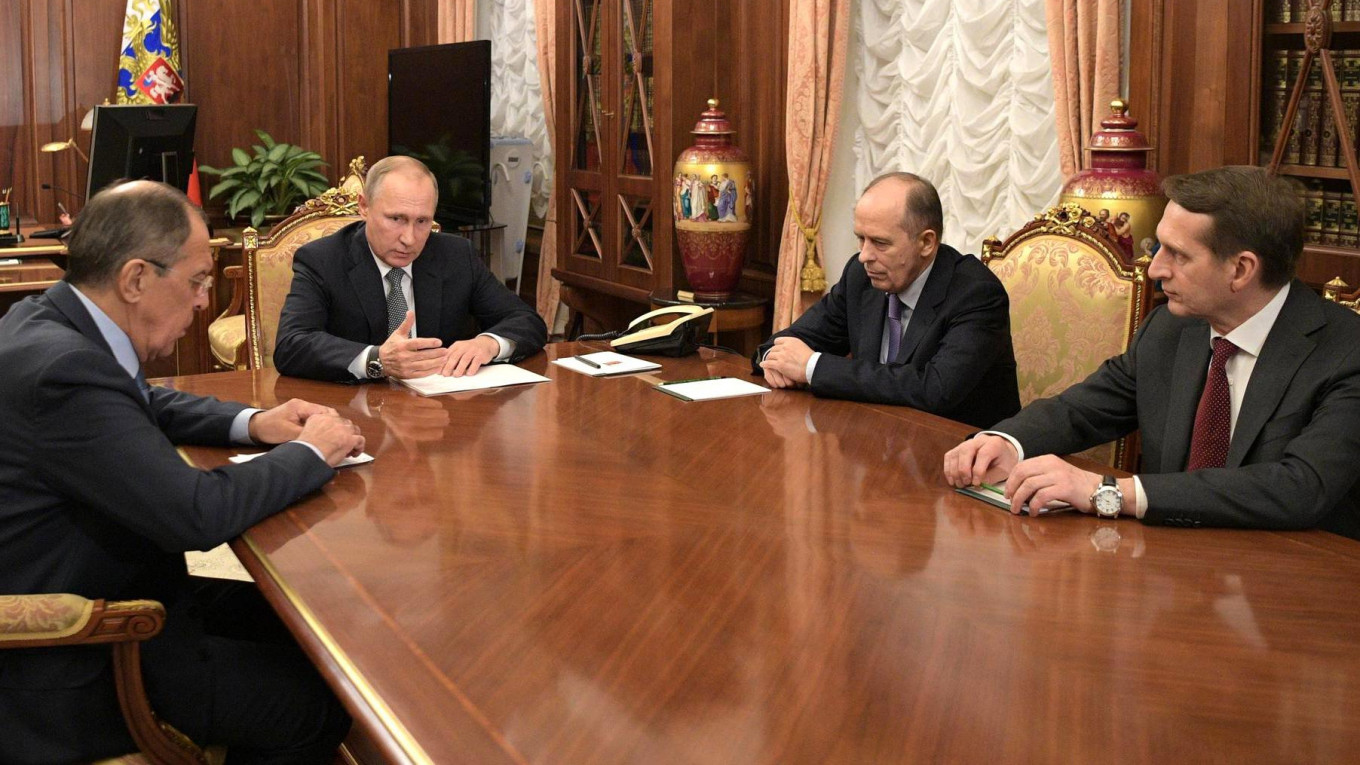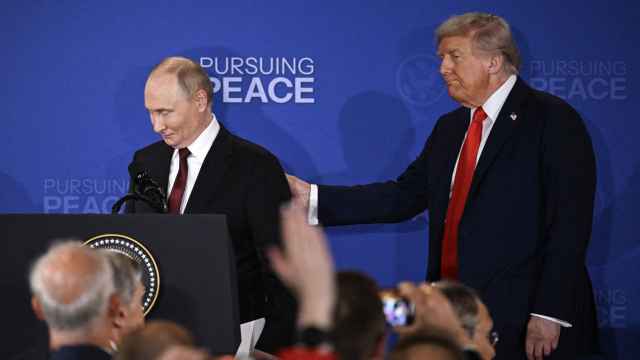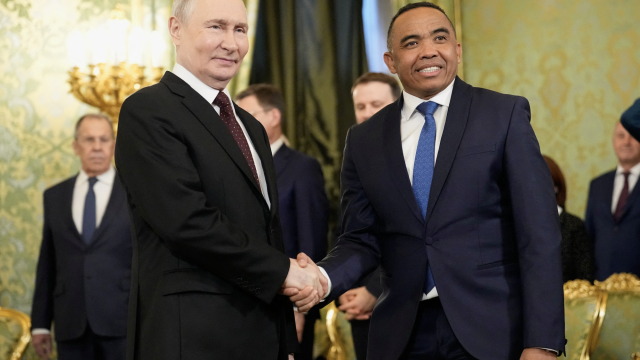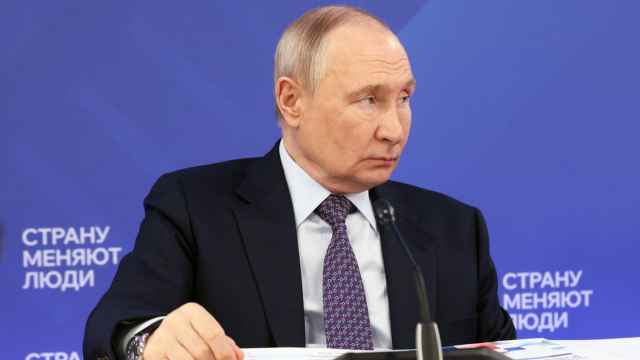Vladimir Putin met today with several of his top officials to discuss the assassination of Russia’s ambassador to Turkey, Andrei Karlov, who was shot and killed in Ankara at an art gallery on Monday. Sitting down with Foreign Ministry Sergei Lavrov, Federal Security Service director Alexander Bortnikov, and Foreign Intelligence Service head Sergei Naryshkin, Putin called the attack “a provocation” designed to derail the normalization of bilateral relations between Russia and Turkey.
Putin also said the murder was intended to disrupt the peace process in Syria, where he says Russia, Turkey, Iran, and other countries are working hard to end the civil war.
“There can be only one response: intensifying our fight against terror,” the Russian president said before television cameras. “And the bandits will feel it.”
On Monday, Dec. 19, Russia’s ambassador to Turkey, Andrei Karlov, was assassinated at an art gallery by a man identified by Ankara’s mayor as a former police officer.
Local news outlets in Turkey claim the assailant was involved in FETO, an organization run by Fethullah Gulen, who lives in exile in the United States. FETO is banned as a terrorist organization in Turkey, where local journalists say the assailant was fired from the Turkish police, following an unsuccessful coup attempt in Turkey on July 15, earlier this year.
Putin isn’t the first Russian politician today to use the word “provocation” when commenting on Karlov’s murder. Right-wing nationalist politician Vladimir Zhirinovsky described the assassination using the same word, claiming that the West is to blame for the attack on Karlov.
For more on this tragedy, see: Russian Ambassador to Turkey Shot and Killed by Gunman in Ankara
The assassination mars a reconciliation between the Turkish and Russian governments that began this summer, after Ankara made apologetic overtures to the Kremlin, months following the downing of a Russian aircraft by the Turkish Air Force in November 2015, along the country's border with Syria. The incident led to a sharp decline in bilateral ties, and Russia briefly imposed sanctions on Turkey.
On social media, some analysts have already begun speculating that Moscow and Ankara might try to escape another chilling in relations by holding the Obama Administration accountable for the assassination, given that the United States currently harbors Gulen.
A Message from The Moscow Times:
Dear readers,
We are facing unprecedented challenges. Russia's Prosecutor General's Office has designated The Moscow Times as an "undesirable" organization, criminalizing our work and putting our staff at risk of prosecution. This follows our earlier unjust labeling as a "foreign agent."
These actions are direct attempts to silence independent journalism in Russia. The authorities claim our work "discredits the decisions of the Russian leadership." We see things differently: we strive to provide accurate, unbiased reporting on Russia.
We, the journalists of The Moscow Times, refuse to be silenced. But to continue our work, we need your help.
Your support, no matter how small, makes a world of difference. If you can, please support us monthly starting from just $2. It's quick to set up, and every contribution makes a significant impact.
By supporting The Moscow Times, you're defending open, independent journalism in the face of repression. Thank you for standing with us.
Remind me later.






